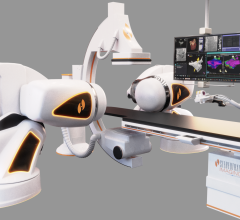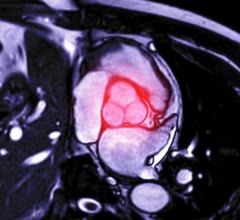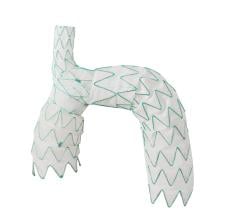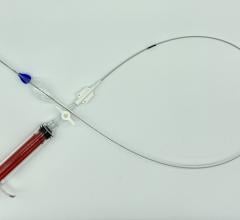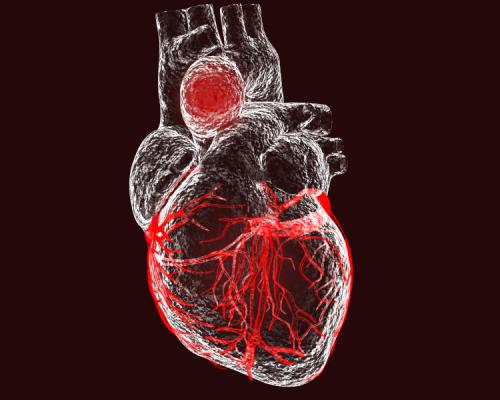
Experts at the Smidt Heart Institute's new Aortic Surveillance Clinic will monitor patients with aortic aneurysms (illustrated here) or enlarged aortas. Image by Getty
December 20, 2023 — The Smidt Heart Institute at Cedars-Sinai has opened an Aortic Surveillance Clinic for the evaluation and long-term monitoring of patients with enlarged aortas, or aortic aneurysms, for whom surgery may not be necessary.
The clinic is the newest offering from the heart institute’s dedicated Aortic Program, an interdisciplinary team of highly specialized cardiologists, cardiac and vascular surgeons, radiologists, genetic counselors, and nurses treating the full spectrum of aortic disorders
“When patients hear that they have an aortic aneurysm, they often think they are ticking time bombs, but that is not always the case,” said Robbin Cohen, MD, professor of Cardiac Surgery and director of the Cardiac Surgery Program at Huntington Health, a Cedars-Sinai affiliate. “Most of the patients that we see--many with genetic conditions affecting the heart--have aortas that are not large enough or serious enough to need surgery, but they do require ongoing monitoring.
Smidt Heart Institute patients benefit from access to a multidisciplinary team including cardiac and vascular surgeons skilled in treating a range of aortic conditions.
“We take pride in our collaborative approach, which benefits patients with various complex aortic diseases,” said vascular surgeon Ali Azizzadeh, MD, professor and director of Vascular Surgery, associate director of the Smidt Heart Institute at Cedars-Sinai and an aortic aneurysm expert. “Our team is versed in innovative, minimally invasive procedures, in which cardiac surgeons and vascular surgeons are thorough and thoughtful in how best to manage each individual patient’s needs.”
Cohen has more than 25 years of experience monitoring and treating patients with aortic aneurysm.
“Aortic surgeons know that over time, they will accumulate hundreds of patients with aneurysms that they are following and not operating on,” Cohen said. “This requires expertise in aortic imaging, the natural history of aortic disease, and the guidelines and criteria for surgery--areas in which the Smidt Heart Institute team is highly skilled.”
The aorta is the largest and most important artery. It carries blood away from the heart into the rest of the body. Careful monitoring of a significantly enlarged aorta, or aortic aneurysm, can help prevent the possibility of a life-threatening condition, such as aortic dissection--a tear that develops along the inner layer of the aorta.
The Aortic Surveillance Clinic also provides expert care for patients with certain genetic syndromes, such as connective tissue disorders like Marfan syndrome and Loeys-Dietz syndrome, as well as other genetic disorders affecting the aorta and aortic valve, such as Turner syndrome. These patients are at high risk of developing an enlarged aorta and subsequently, a tear or dissection in the aorta due to abnormalities in the heart and blood vessels. Because these disorders also can affect other areas of the body, the Aortic Surveillance Clinic goes a step further and addresses these issues by connecting patients with genetic counselors, ophthalmologists, orthopedists, psychologists, reproductive endocrinologists and other specialists, as needed.
“We are pleased to have the ability to focus on a subset of patients when they don’t need surgery--and educate them on how to prevent acute aortic events, which can be fatal,” said Joanna Chikwe, MD, chair of the Department of Cardiac Surgery and the Irina and George Schaeffer Distinguished Chair in Cardiac Surgery in the Smidt Heart Institute at Cedars-Sinai. “And if these patients do need surgery--which can be complex and challenging--the Smidt Heart Institute has the expertise of a comprehensive, multidisciplinary team to take care of them, with superb results.”
For more information: https://www.cedars-sinai.org/


 September 18, 2025
September 18, 2025 

